On April 3, 2023, the Business School organized the second lecture of the “Labor Practice” series, which was delivered by Yin Lili, MBA alumnus of CUFE, alumni mentor of the Business School, a member of the Beijing Fengtai District Committee of CPPCC, deputy secretary general of the Intangible Cultural Heritage Working Committee of China National Arts & Crafts Society, the ambassador for promotion of China's textile intangible cultural heritage in 2022, and the founder & CEO of Beijing Rongjin Cultural Development Co., Ltd.. The topic of the lecture was “See the Blooming of the Spirit of Craftsmanship in the New Consumer Era from the Beautiful Intangible Cultural Heritage”.
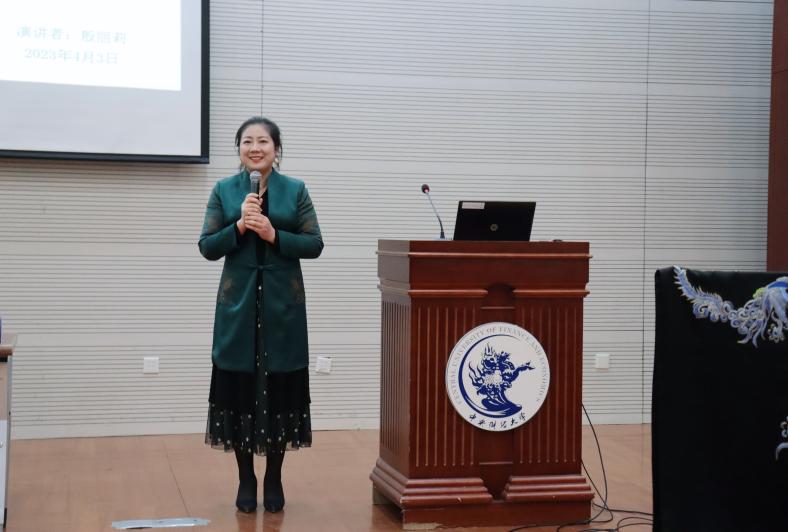
This lecture is an important part of “Labor Practice”, a required course of the Business School in terms of talent cultivation, and is funded and supported by the Graduate Classroom Guest Lecture Support Program of CUFE’s Graduate School. More than 200 undergraduate, graduate and doctoral students from the Business School attended this lecture. Professor Yu Guangtao, the leader of the “Labor Practice” course, issued commemorative certificates to the guests of this lecture.
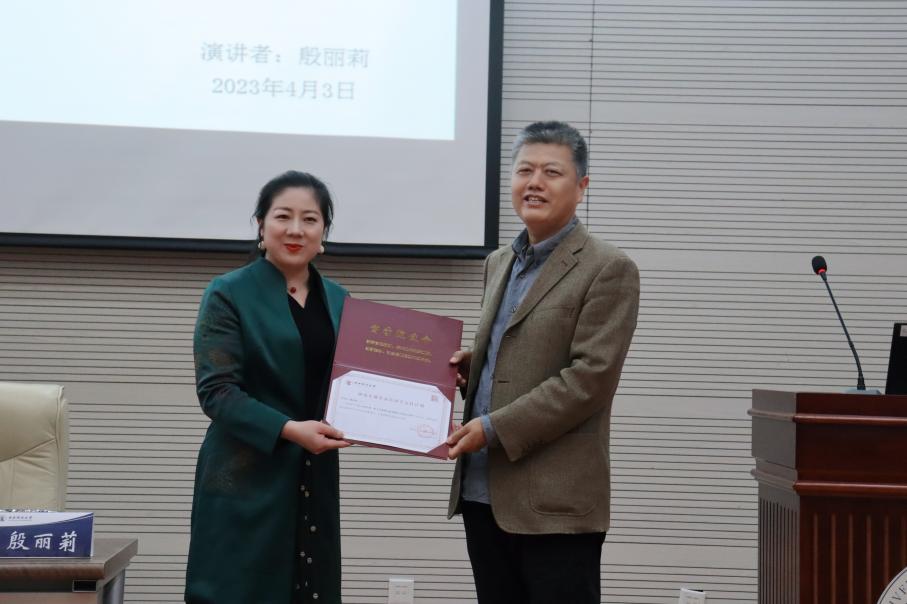
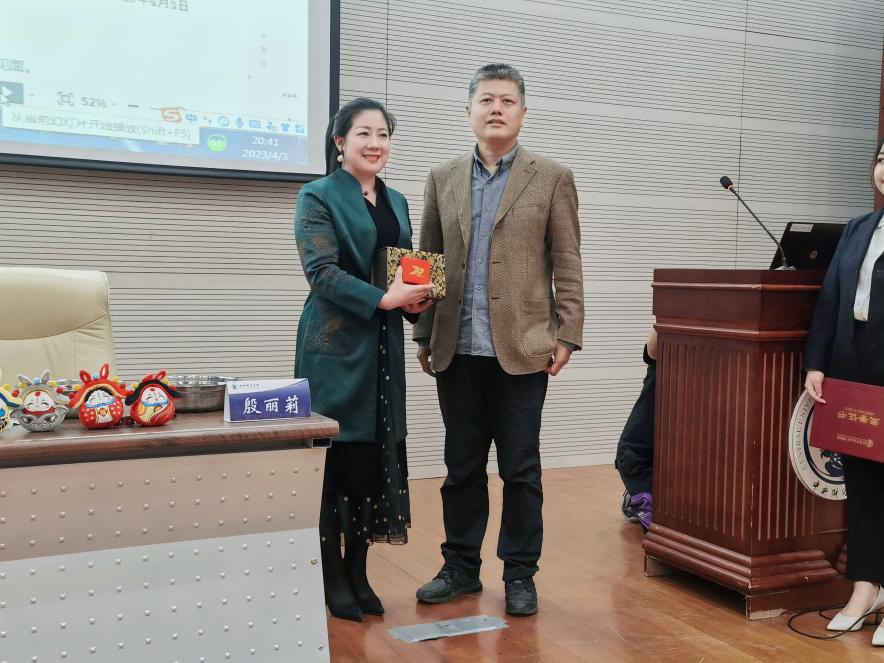
Yin Lili’s lecture was mainly focused on five dimensions, i.e. “What is the craftsmanship spirit?”, “Intangible cultural heritage and intangible cultural heritage industry background”, “How can intangible cultural heritage bloom in the new era?”, “How does intangible cultural heritage + empower traditional industries?” and “Comprehensive cases of intangible cultural heritage + cross-border empowerment”. For the craftsmanship spirit, Yin Lili pointed out that the quality of workers was crucial for the development of a country or a nation, ant that whether in traditional manufacturing or emerging industries, or in industrial economy or digital economy, craftsmen had always been an important force in industrial development, and the craftsmanship spirit had always been an important spiritual source for innovation and entrepreneurship. The craftsmanship spirit is a professional spirit that reflects professional ethics, professional abilities, and professional qualities. She expounded the basic connotation of the craftsmanship spirit from four key words, i.e. dedication, excellence, concentration and innovation, as well as three levels, i.e. individuals, enterprises and the society.
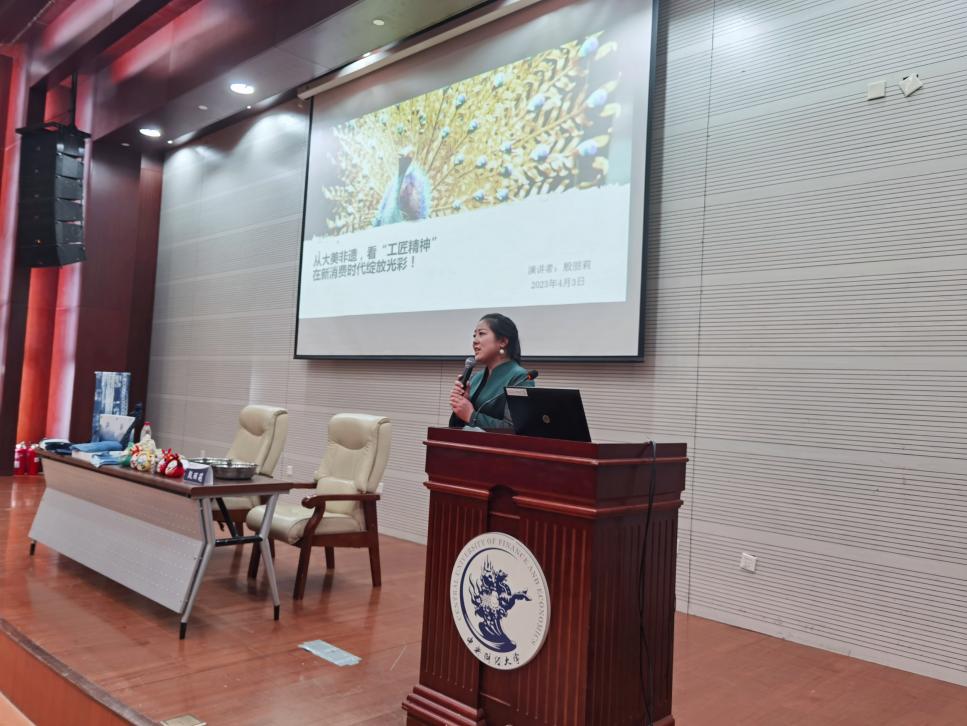
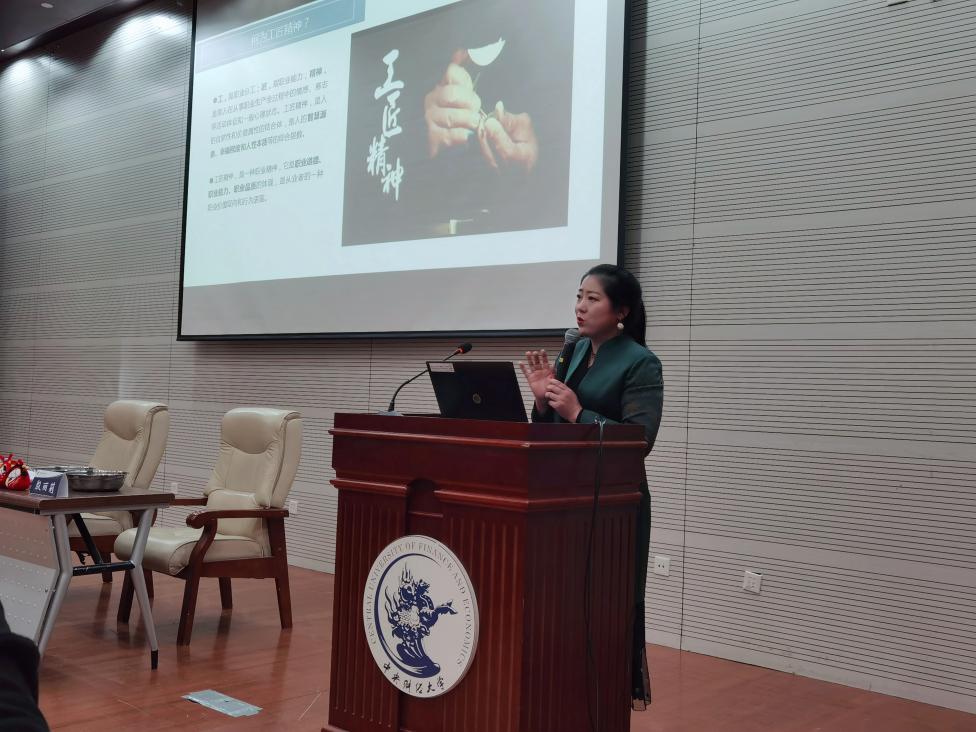
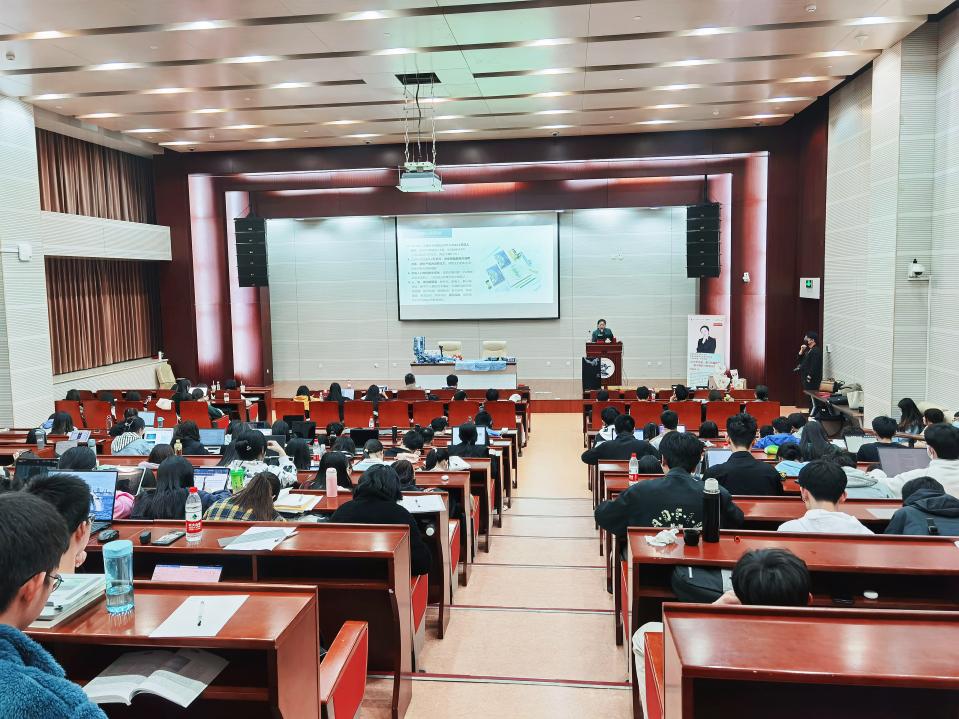
During the narration, Yin Lili emphasized that the needs of the new era had enriched the connotation of labor, making the craftsmanship spirit a sublimation of the spirit of model workers and the working spirit, while the exquisite traditional craftsmanship, profound national thinking and unique cultural genes contained in intangible cultural heritage is also an embodiment of the craftsmanship spirit. Intangible cultural heritage is a “living cultural heritage”. In view of the cultural genes and craftsmanship spirit of intangible cultural heritage, it is necessary to help the transformation of intangible cultural heritage into commercial value through the research on intangible cultural heritage branding and the practice of intangible cultural heritage + new economic ecosystem. With a focus on the theme of how to empower products, companies and industries through intangible cultural heritage in the new consumption era, she introduced comprehensive cases such as “Intangible Cultural Heritage + Workshop”, “Intangible Cultural Heritage + Cultural Creation”, “Intangible Cultural Heritage + Education”, “Intangible Cultural Heritage + Homestay”, “Intangible Cultural Heritage + Cultural Tourism”, “Intangible Cultural Heritage + Study Tour”, “Intangible Cultural Heritage + Fashion” and “Intangible Cultural Heritage + IP”. The development of the times requires craftsmen from great countries; to embark on a new journey, it is necessary to vigorously promote the spirit of craftsmanship.
The spirit of craftsmanship runs through all aspects of intangible cultural heritage, and upholding the spirit of craftsmanship is also the foundation for the inheritance of intangible cultural heritage. Only by upholding the spirit of craftsmanship characterized by calmness, independence, pragmatism, abandonment of impatience, tranquility, delicacy, exquisiteness and single-minded devotion in market competition, we can promote the creative transformation and innovative development of intangible cultural heritage, in order that intangible cultural heritage could burst out with new vitality in the new consumption era.
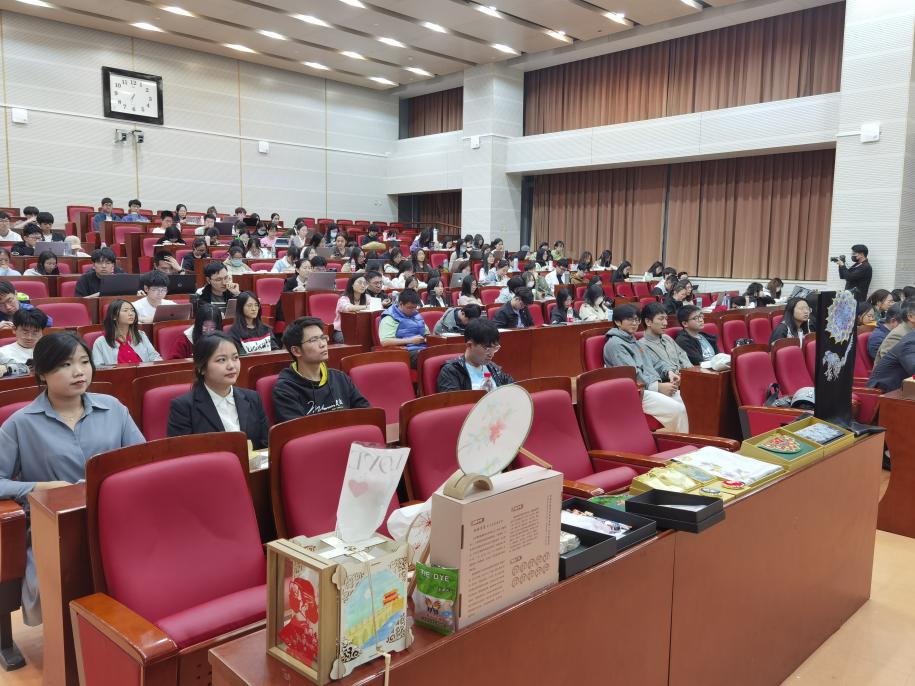
The lecture does not only contain rich background knowledge and non-heritage case presentations, but also contain practical demonstrations. The teachers of intangible cultural heritage courses from the Rong Yi Academy, an educational brand of Rongjin Culture, demonstrated the whole process of tie-dyeing on the site, and intuitively conveying the labor process and the spirit of craftsmanship to the students.
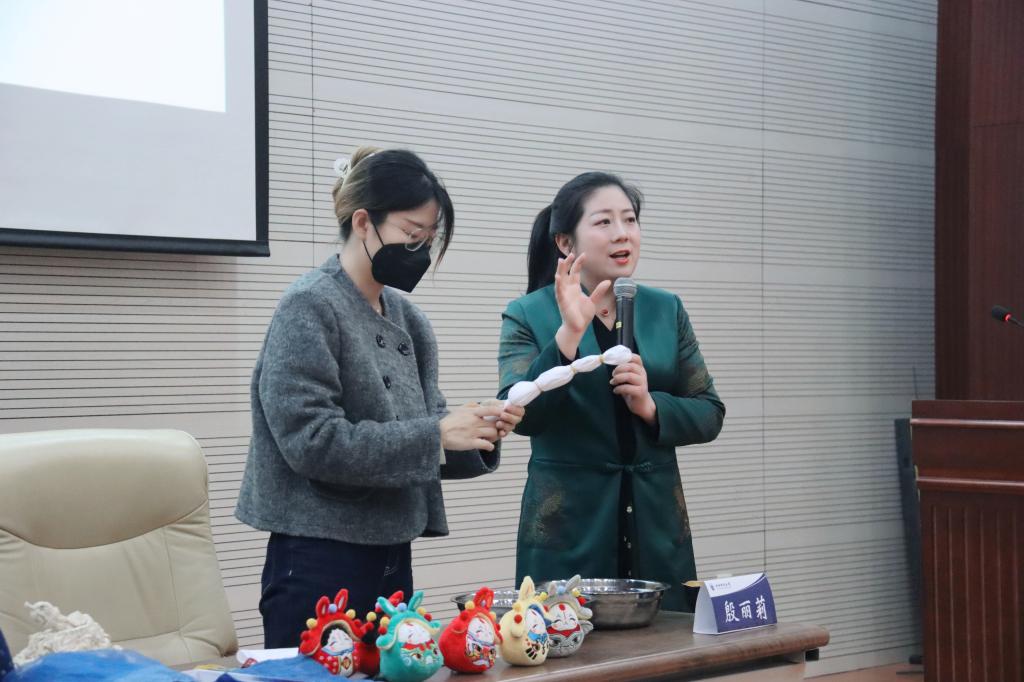
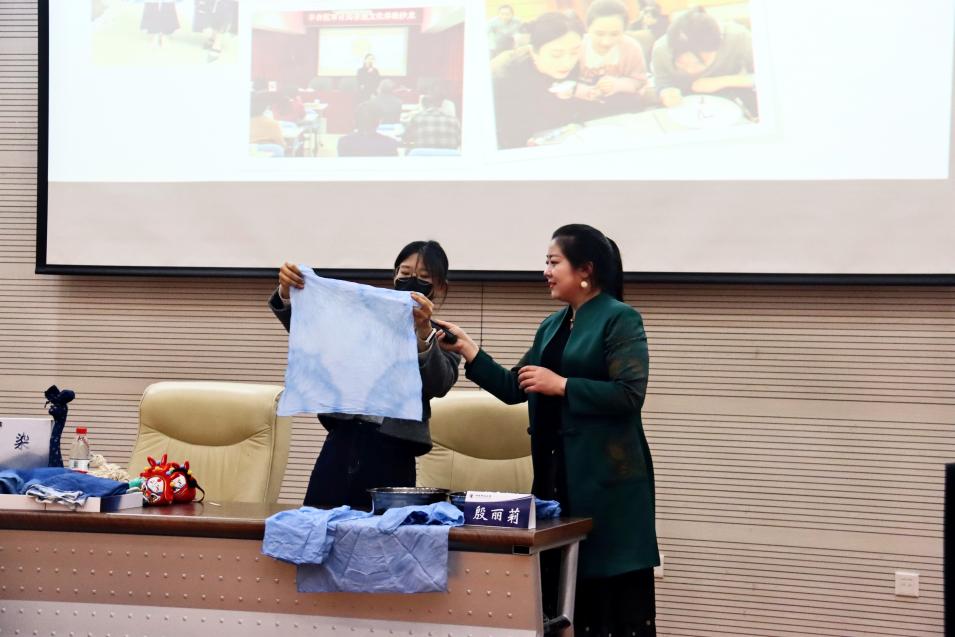
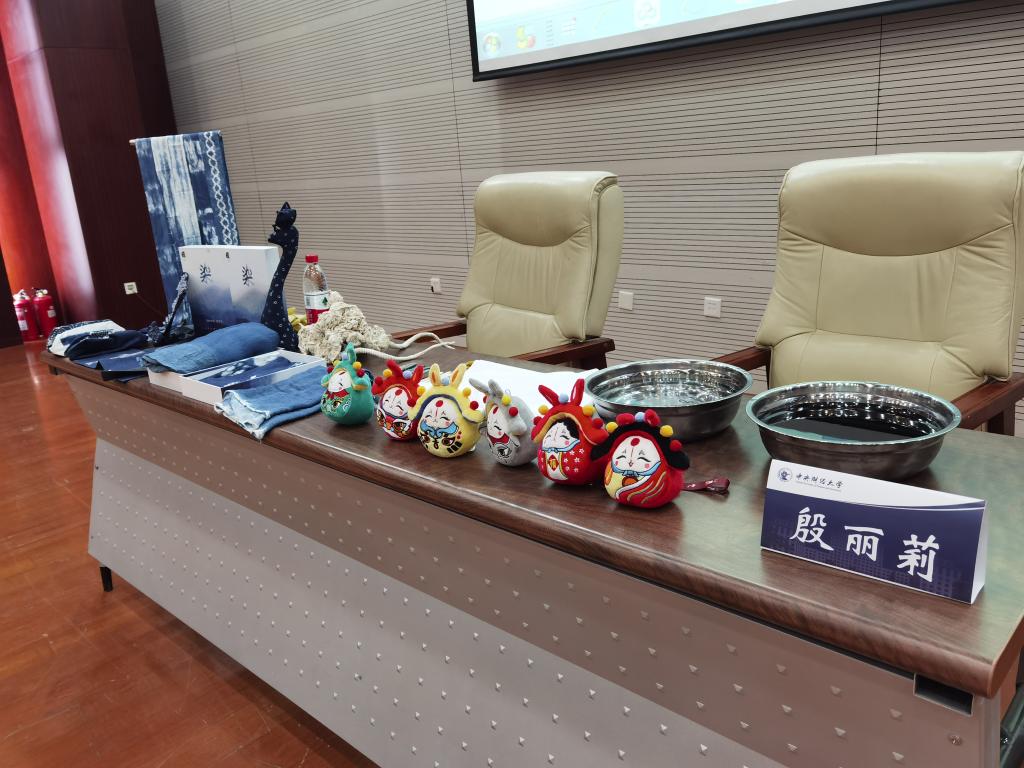
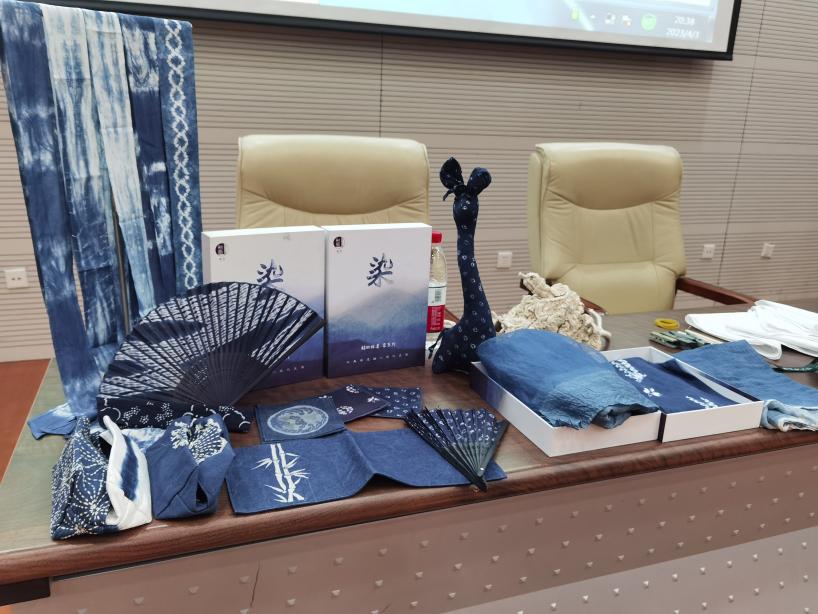
As the guest of honor, Wang Xiaoyu, an MBA alumnus of our university who is now working at the investment banking department of Guoxin Securities, shared his understanding of the spirit of craftsmanship with the students after having attended this lecture, combined the spirit of craftsmanship with financial work, and made suggestions on the career planning of the students.
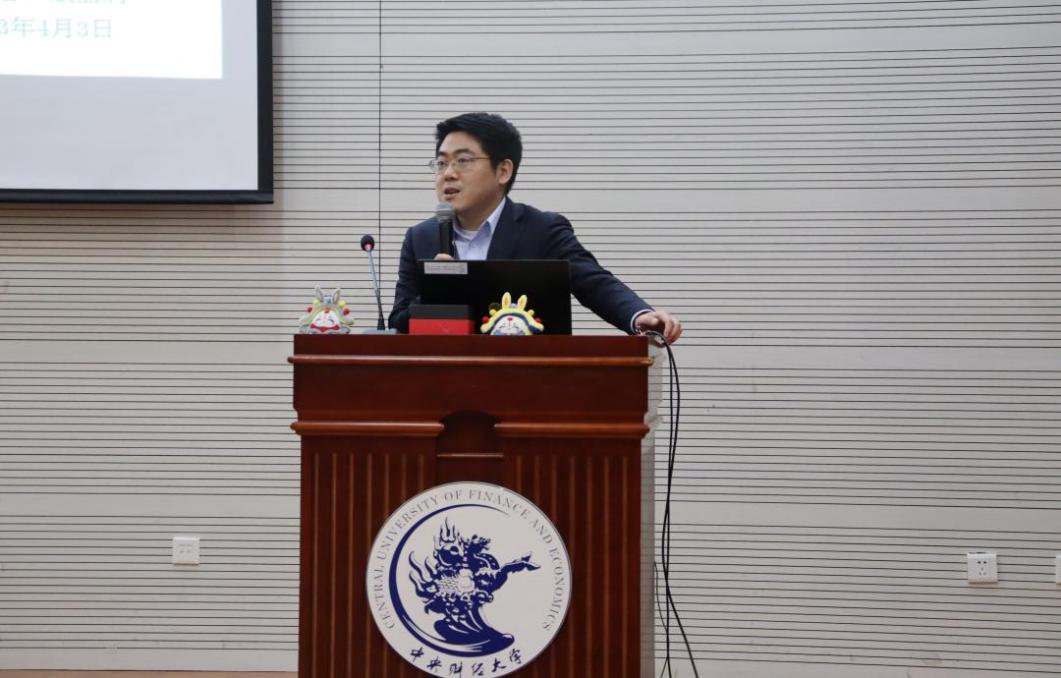
At the end of the event, Professor Yu Guangtao summarized the lecture, quoted a sentence from Yin Lili in the lecture, “if you’re dedicated to an art, you’ll have to work hard for it; if you’re dedicated to your job, you’ll have to perform your job well”, encouraged students to be more observant and think more in their daily life and apply the spirit of craftsmanship to all aspects of study, life and work.
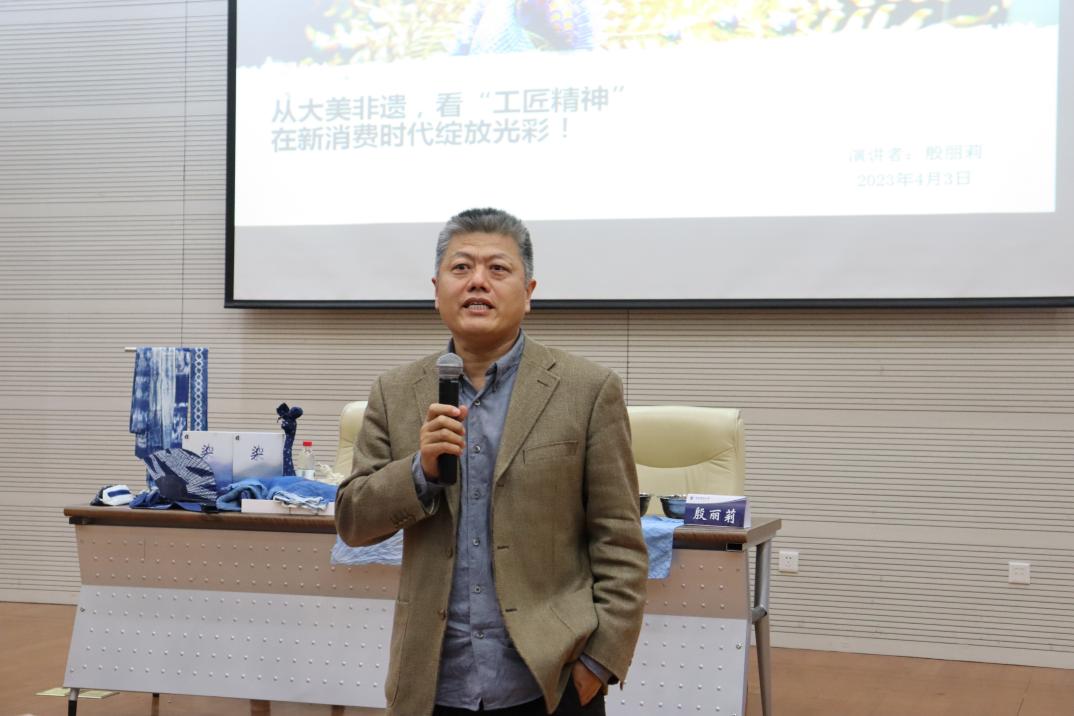
Student Achievements and Evaluations
Zhao Ziyi (Graduate Student of the Class of 2024 of the Business School):
Today, I had the honor to attend the lecture titled “See the the Blooming of the Spirit of Craftsmanship in the New Consumer Era from the Beautiful Intangible Cultural Heritage” presented by Yin Lili. In the theme lecture, Yin Lili started with the spirit of craftsmanship, explained how to help the development of traditional industries through “intangible cultural heritage” and described the contemporary significance of intangible cultural heritage + cross-border empowerment. By participating in this practical course, I understood the indispensability of the spirit of craftsmanship, which should penetrate into all aspects of our study, work and life to achieve excellence. In addition, as a student from the Business School, I should give full play to my creativity to explore new business models in the inheritance of intangible cultural heritage just as Yin Lili, and the knowledge learned should not be limited to the field of finance and management.
Liu Yingfeng (a doctoral student of the Class of 2022 of the Business School):
Yin Lili began with the spirit of craftsmanship, shared all kinds of application scenarios and typical cases of “intangible cultural heritage +”, showed us the role of intangible cultural heritage cultural products in the extension of such industries as cultural tourism, fashion and homestay, and affirmed the possibilities of cross-border empowerment of intangible cultural heritage in the future. Besides, during the sharing and exchange, Yin Lili mentioned that financial professionals should have conceptual skills in top-level design, and should often think about how finance and economics contribute to specific industrial scenarios, and how to promote the life adaptation, industrialization and internationalization of the cultures, services and products that are as good as intangible cultural heritage through the innovation of business models.
